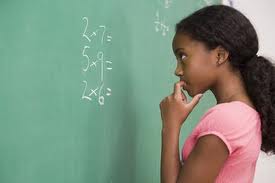Individuals who have difficulty reading and writing known as dyslexia is the equivalent to dyscalculia, for individuals who have difficulty coping up with basic mathematical concept.
It has been suggested to put up a specialized teaching of education to address the problems of students with such a handicap.
According to a research published in the journal Science, such specialized teaching for individuals should be made available in mainstream education.
Research suggest that dyscalculia is something that is inborn to an individual and suggests that a mathematical handicap has something to do with genetics inherited by the children from both or either of the parents. However, the genes responsible have not yet been known.
A concerted thrust by scientists and educators in this field has established the essential neural network that supports arithmetic, and revealed abnormalities in this network in the brains of dyscalculic learners.
Individuals with dyscalculic handicap, assistance is needed in strengthening simple number concepts through an appropriate specially designed teaching methods supported by game like software that adapts to the learner’s current level of competence, neuroscience research has shown what is most needed to address the problem.
Common indicators of dyscalculia are :
*** Carrying out simple number comparison and addition tasks by counting, often using fingers, well beyond the age when it is normal.
*** Finding approximate estimation tasks difficult. Individuals identified as dyscalculic behave differently from their mainstream peers.
Professor Diana Laurillard, co-author and a member of Centre for Educational Neuroscience (CEN) from the Institute of Education (IOE), University of London, said:
“Results from neuroscience and developmental psychology tell us that dyscalculic learners need to practice far more number manipulation tasks than mainstream learners. Adaptive, game-like programs that focus on making numbers meaningful, emulating what skilled CEN teachers do, can help learners practice beyond the classroom and build the basic understanding they need to tackle arithmetic.”
